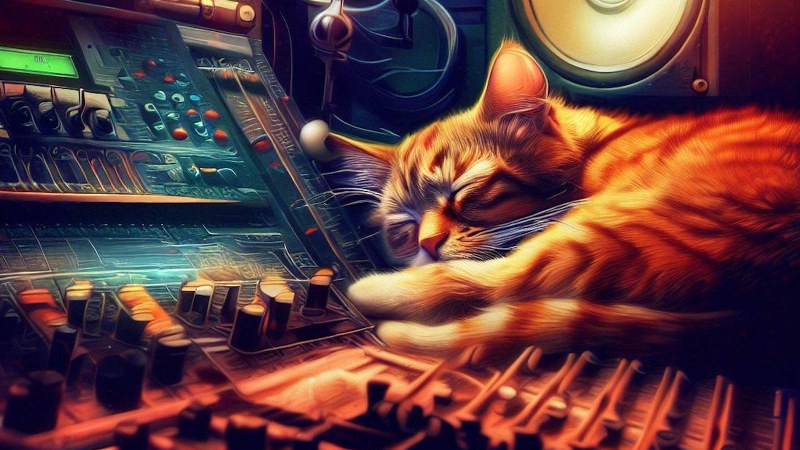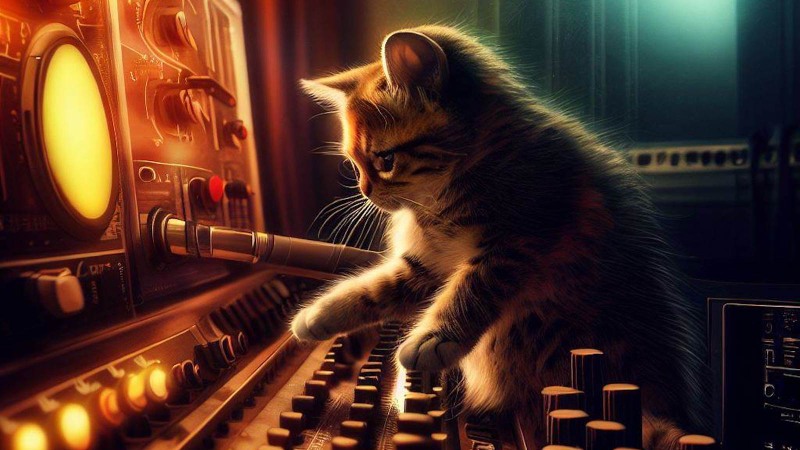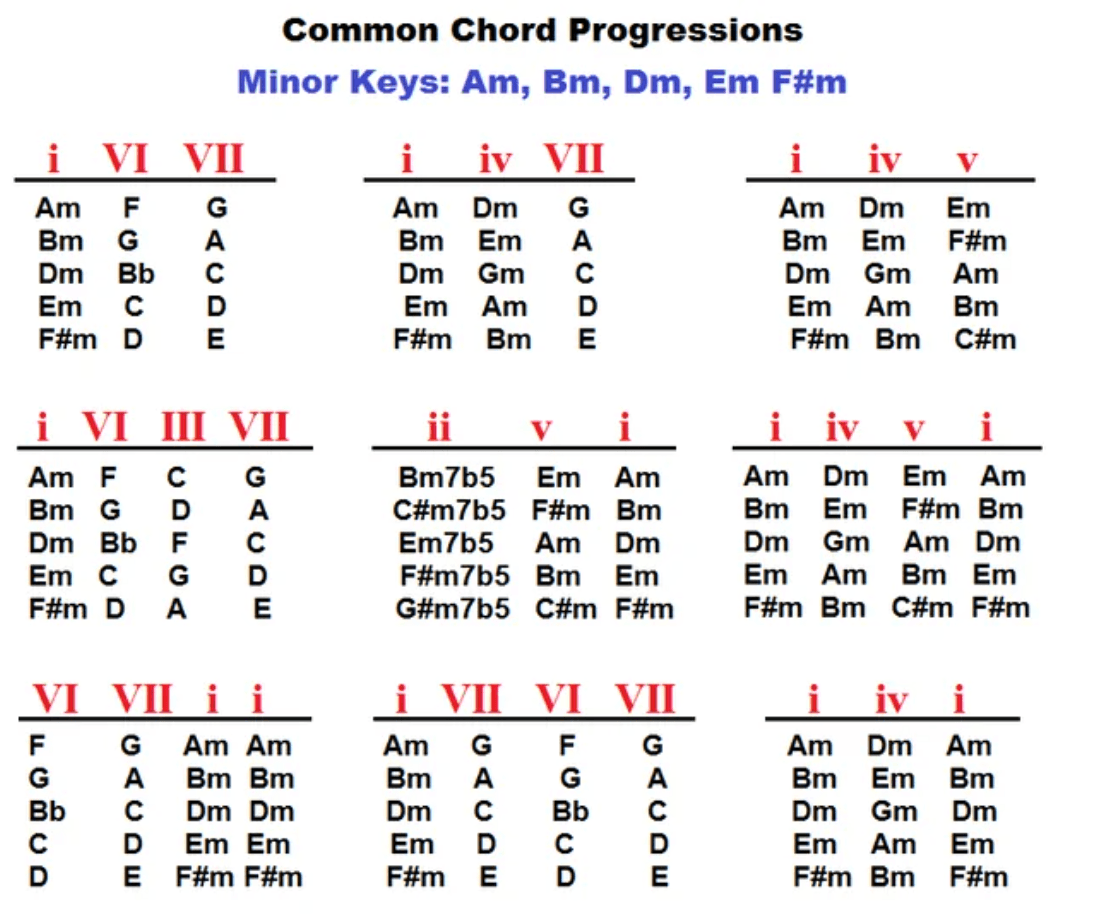Ever wondered how a simple tune transforms into a chart-topping hit? Dive into the enthralling world of audio production to discover its magic.

The Melody of Basics: What is Audio Production?
Audio production is not just pushing buttons and twisting knobs; it's the symphony of technical skill and artistic flair coming together to make sound resonate with our souls.
Let’s delve deeper:
1. Capturing Sound: The First Note
Every musical journey begins with capturing raw sound. This is where audio production shines.
Using studio microphones and equipment, from a vocalist's emotive delivery to an electric guitar's vibrant strum, everything is recorded with precision.
2. Creating the Vibe: More than Just Sound
It's not just about capturing what's played. Audio engineering involves the synthesis of new sounds or rhythms, giving birth to EDM beats, ambient backgrounds, or thrilling sound effects for TV projects.
3. Art of Editing: Perfecting the Track
Post-recording, not every note or beat aligns perfectly. Editing swoops in here. From pitch correction on vocals to time alignment for instruments, editing ensures everything is in harmony.
4. Enhancing Sound: The Final Polish
The sound captured is raw and unrefined. With mixing and mastering techniques, audio production elevates the track.
This involves balancing levels, adding effects, and ensuring the music translates well across devices, be it a booming club speaker or your earbuds.
5. The Production Symphony
To appreciate audio production, imagine watching your favorite movie without its dramatic score or attending a live concert where instruments drown out the vocals.
The intricate process ensures every sound, note, and beat hits perfectly, delivering an unmatched auditory experience.
The Symphony of Phases: From Songwriting to Mastering
Creating a piece of music is akin to crafting a masterpiece. It evolves, step by step, through distinct phases of audio production.
Let’s embark on this melodic journey:
1. Songwriting: Penning the Heart’s Melody
Before any recording or mixing takes place, the essence of the song needs to be conceptualized. Songwriting is where emotions transform into lyrics and melodies.
It is the foundation upon which the entire song is built, involving both instrumental and lyrical composition.
Songwriting is where musical ideas come to life, sometimes inspired by personal experiences, emotions, or even other pieces of art.
2. Arranging: Crafting the Blueprint
Once we have the song, how do we want it to flow? Arranging determines the song's structure, from the introductory notes to the final outro.
It dictates when the chorus hits, where the guitar solo comes in, or how the EDM beat drops. An arranger considers every instrument and vocals, ensuring they have their moment to shine in the track.
3. Recording: Breathing Life into the Song
With a song and its arrangement in place, it's time to capture the magic.
Recording involves musicians playing their parts, singers delivering their vocals, and technicians ensuring everything is captured with clarity.
Modern audio production often involves multiple takes, ensuring every note and beat is perfect.
4. Editing: The Magic Touch
After recording, there may be minor imperfections, from off-pitch vocals to timing discrepancies in instruments. Editing is the process of rectifying these, ensuring the music is flawless. With modern software and plugins, editing has evolved into a precise art, enabling perfection in every track.
5. Mixing: Painting the Auditory Picture
With various instruments and vocals recorded, they need to come together harmoniously.
Mixing involves adjusting levels, panning, and adding effects.
It ensures that no instrument overshadows another and that the song feels cohesive. The mixing engineer often uses references from similar genres to ensure the song's vibe is on point.
6. Mastering: The Seal of Perfection
The final step in audio production, mastering adds the last layer of polish.
It ensures the track sounds consistent across different devices and platforms, making final adjustments to levels, clarity, and overall balance.
Mastering engineers often possess a golden ear, discerning minute details to deliver a sonically pleasing experience.
Beyond the Stage: Audio Production in Various Industries
When people think of audio production, their minds often wander to chart-topping tracks or sold-out concerts. However, sound plays an essential role in various mediums, adding depth, emotion, and atmosphere.
Let's explore how audio production stretches its melody beyond the music industry:
1. Film: Setting the Mood and Emotion
Every tear-jerking moment, intense chase, or comic relief in movies relies heavily on sound.
Be it the gripping score, subtle ambient noises, or the powerful dialogues, audio production is a star in the film business.
Soundtracks in films aren't just about music. They combine dialogue, effects, and score, each mastered meticulously to evoke precise emotions from the audience.
2. Podcasting: A Sound Feast for the Ears
With the rise in popularity of podcasts, crisp sound quality and balanced mixing have never been more vital.
From recording vocals clearly to adding effects or editing out mishaps, audio production ensures listeners stay hooked.
While podcast content is king, audio engineering is the castle that houses it. Proper sound ensures content is heard without distractions.
3. Video Games: Crafting Immersive Worlds
Imagine a game without the roar of dragons, the revving of race cars, or the ambient sounds of a forest. Sound design in gaming is pivotal in creating realistic, engaging environments.
It's not just about loud explosions; it's about layering multiple sounds to construct a virtual reality.
From footsteps on various terrains to the clang of swords, sound designers use a plethora of instruments, consoles, and software plugins to get the desired audio effect.
4. TV Projects: Ensuring Continuity and Clarity
Television shows, whether live broadcasts or series, demand impeccable audio production.
Dialogue clarity, background music, and sound effects need to be in perfect sync to keep viewers engaged episode after episode.
TV series often require songwriting for theme songs or particular episodes. Sound engineers and mixing professionals work behind the scenes to ensure auditory perfection.
5. Live Shows & Theatre: The Real-time Magic
While not an entirely different industry, live shows and theatre productions present unique audio production challenges.
Everything, from live recording to on-the-spot mixing, requires swift expertise.
Live sound engineering ensures that every instrument, from the softest flute to the booming drums, is heard in perfect harmony without overshadowing the actors' or singers' vocals.
Finding Your Beat: Kick-starting a Career in Audio Production
The world of audio production is vast, vibrant, and ever-evolving. From chart-topping hits to iconic movie scores, the demand for skilled professionals never wanes.
Whether you're a novice with a passion for sound or an enthusiast looking to professionalize your hobby, here's how you can kick-start your career in audio production:
1. Formal Education: Setting a Solid Foundation
Delving into the realms of sound requires not just passion but knowledge. Universities and specialized music schools offer degree programs and courses tailored for audio enthusiasts.
These institutions cover the A-Z of audio engineering, from mastering the principles of sound to hands-on training with advanced equipment and consoles.
Additionally, having a degree can provide credibility in the business world of music and recording.
2. Apprenticeship: Gaining Real-world Experience
Sometimes, there's no better teacher than experience. By working under seasoned industry professionals, you can acquire the nuances of audio production that textbooks might not offer.
From recording live instruments to mixing in a studio environment, apprenticeships provide invaluable hands-on experience.
Being an apprentice allows you to work on actual projects, be it in music, TV, or film. This enhances your abilities while also allowing you to establish a repertoire and forge connections in the field.
3. Teach Yourself: The Journey of Self-Instruction
With today's digital landscape, endless knowledge is just a click away. For those who value autonomous study, a vast array of online guides, lessons, and modules awaits.
Dive deep into software, understand different techniques, and experiment with plugins and tools.
Platforms like YouTube offer tutorials on almost every aspect of audio production. From mastering the intricacies of DAWs (Digital Audio Workstations) to editing and mixing EDM tracks, the internet is a goldmine of knowledge.
Remember, many industry legends started in their bedrooms, tinkering with software and instruments.
Bonus Tip: Join Communities & Forums
Engaging with fellow enthusiasts and professionals can offer insights, feedback, and collaboration opportunities. Whether it's sharing references, discussing mixing techniques, or troubleshooting software issues, being part of a community can immensely boost your learning curve.
The Lifelong Pursuit in Audio Production
Embarking on a career in audio production is a journey of continuous learning. Whether you choose formal education, learn on the job, or teach yourself, remain curious, and passionate.
And as you fine-tune your skills, remember that every beat, note, and sound you produce adds rhythm to the world's soundtrack.

Essential Gear: Tools Every Audio Producer Needs
Within the sphere of audio production, possessing the appropriate equipment can transform a novice output into a refined work of art. As technology progresses, the arsenal for producers does too.
Let's break down the must-have equipment and software that every audio producer should consider:
1. Hardware Tools: Building the Foundation of Sound
The tangible elements of an audio studio, hardware tools are pivotal for capturing and refining sound in its purest form.
- Studio Microphones: The cornerstone of any recording setup. Whether capturing pristine vocals, live instruments, or ambient sounds, a quality microphone is essential. There's an art to mic techniques, with different mics suited for various recording tasks - be it vocals, instruments, or live performances.
- Mixing Consoles: These are the heart of an audio setup, allowing producers to control multiple input sources, adjust levels, and add effects. Modern consoles come equipped with advanced audio engineering features that make mixing a breeze.
- Pre-amplifiers: These boost the microphone's signal, ensuring clarity and reducing noise. A good pre-amplifier can elevate the quality of your recordings.
- Equalizers, Compressors, and Effects: Critical for shaping and enhancing sound. Equalizers balance frequencies, compressors manage dynamics, and effects add the special touch. Proper equipment usage can transform a flat recording into a sonic delight, be it through reverb, delay, or modulation effects.
2. Software Tools: The Digital Playground
The post-recording phase has shifted almost entirely to the digital realm, making software tools indispensable for modern producers.
- DAW (Digital Audio Workstation): This is where the magic happens. A DAW allows for editing, mixing, and mastering. Platforms like Pro Tools, Ableton Live, and Logic Pro are industry favorites. Choosing a DAW often depends on your primary focus, be it songwriting, electronic music production (EDM), or film scoring. Not sure which one's for you? Dive into this article on choosing the right DAW.
3. Software Plug-ins: Elevate Your Audio Game
Plug-ins are to a DAW what apps are to a smartphone. They extend functionality, offering endless creative possibilities.
- Mixing and Mastering Effects: These plug-ins, such as EQs, reverbs, and compressors, help in refining tracks, ensuring they sound cohesive and polished. With plugins, audio engineering principles come to life, allowing for precise adjustments and enhancements.
- Creative Effects: From synthesizers to samplers, creative plug-ins can redefine a song's sonic landscape.
- Music Production Suite Pro Membership: Considering a comprehensive plug-in collection? This membership offers a vast array of tools, ensuring you're always equipped for any audio production task.
The Future Sound: Top Trends in 2023
The world of audio production constantly evolves, driven by technological advancements and shifts in consumer demand. As we navigate through 2023, several groundbreaking trends are shaping the sound of the future.
Let's delve into these sonic revolutions:
1. Lossless Audio: Uncompromised Clarity and Depth
The era of compressed, low-quality audio files seems to be waning. With the rise of sophisticated headphone technology and increased consumer demand for pristine sound, lossless audio has made a notable entrance.
Unlike compressed formats, which omit chunks of audio data to save space, lossless formats retain every bit of the original recording. The result? A listening experience that mirrors the production's original intent. As artists pour their heart into songwriting and recording, lossless ensures that every nuance, from the warmth of live instruments to the texture of vocals, is authentically conveyed to the listener.
2. Sync Music Field: The Lucrative Intersection of Music and Media
As the demand for content across TV, movies, and advertising surges, so does the need for tailor-made music. The sync music field, which involves pairing music with visual content, has seen significant growth, with revenues skyrocketing to $302.9 million in 2021.
Sync licensing allows musicians and songwriters to earn substantial sums, all while gaining exposure across various projects and platforms. As the business of syncing thrives, it beckons musicians to understand not just music production but also the intricacies of the entertainment business landscape.
3. Spatial Audio: An Auditory Revolution
Spatial audio is not just about listening; it's about feeling enveloped in sound. With techniques like Ambisonic and object-based audio, listeners are transported into a 3D sonic realm.
- Ambisonic Audio: This technique captures audio from multiple directions, creating a sound field that can be experienced in 360 degrees. Especially popular in VR and gaming, it offers a uniquely immersive experience.
- Object-based Audio: Here, sounds are captured with mono microphones and then strategically positioned during post-production. It allows for a dynamic sound experience, especially in film and TV where every footstep and whisper can be felt vividly.
These engineering techniques enable sound designers to craft audio experiences that are not just heard but deeply felt, adding depth to storytelling across mediums.
4. AI in Music Production: The Digital Maestro
AI in music production is no longer a novelty—it's a game-changer. Audio AI tools and AI music tools are reshaping how songs are created, mixed, and mastered.
- AI Powered Creativity: With tools like AI melody generators, artists receive a helping hand in crafting catchy hooks or exploring new musical territories.
- Efficiency and Precision: Tools such as Neutron leverage AI to optimize mixes, ensuring that tracks are balanced and sonically cohesive. While traditional music production emphasizes human touch, AI music tools offer a blend of efficiency and innovation. They're not here to replace the artist but to empower them.

Unlock Your Musical Potential with Empress!
Stepping into the world of music has never been this intuitive and exhilarating. Whether you're an aspiring artist or a seasoned professional, Empress provides a suite of AI-powered tools tailored to refine and revolutionize your creative process.
And if you're looking to craft that perfect chord progression for your next hit, why not give our Chord Candy AI chords generator a whirl?
Dive into a seamless, innovative experience and let your imagination run wild. Try out Chord Candy for free today and embark on a melodious journey like no other!
FAQs: Audio Production
Q1: What’s the importance of mastering in audio production?
Mastering ensures your track sounds cohesive and polished across all devices.
Q2: Can I learn audio production online?
Absolutely! There are numerous online resources, tutorials, and courses available.
Q3: How do AI music tools enhance production?
They simplify complex processes, suggest creative solutions, and expedite tasks.
Q4: Is audio production limited to music albums?
No, it's crucial in industries like films, gaming, TV, and podcasting.
Q5: How important is room acoustics in audio production?
Room acoustics play a pivotal role, ensuring accurate sound reproduction and minimizing unwanted reflections during recording and mixing.
Follow the future of music with Empress. Check out our blog to learn how you can effectively use these AI music tools.


